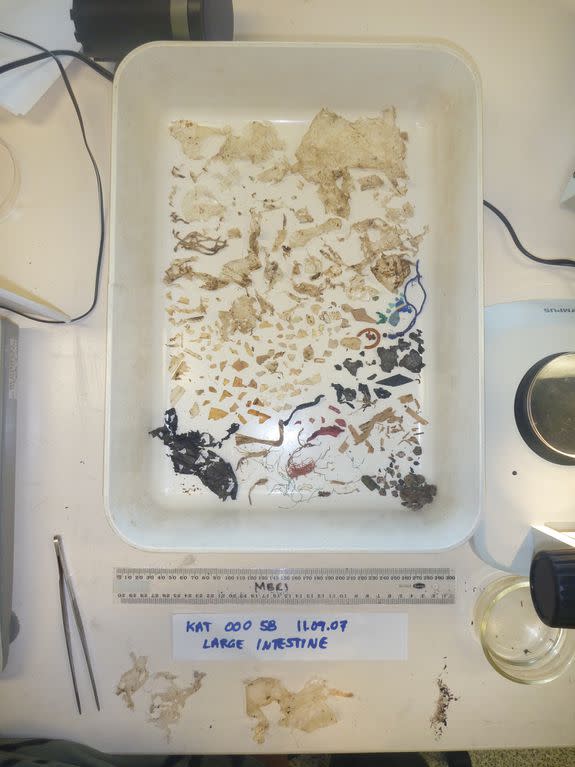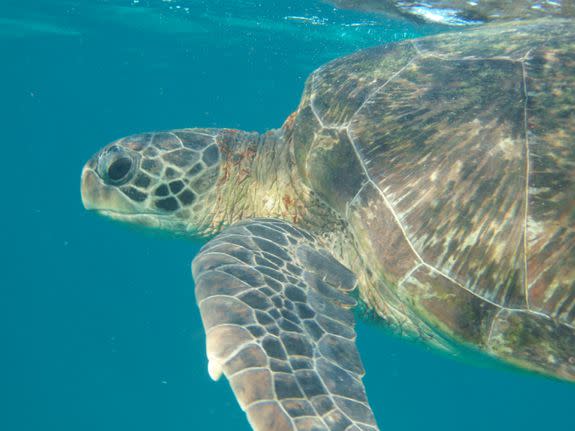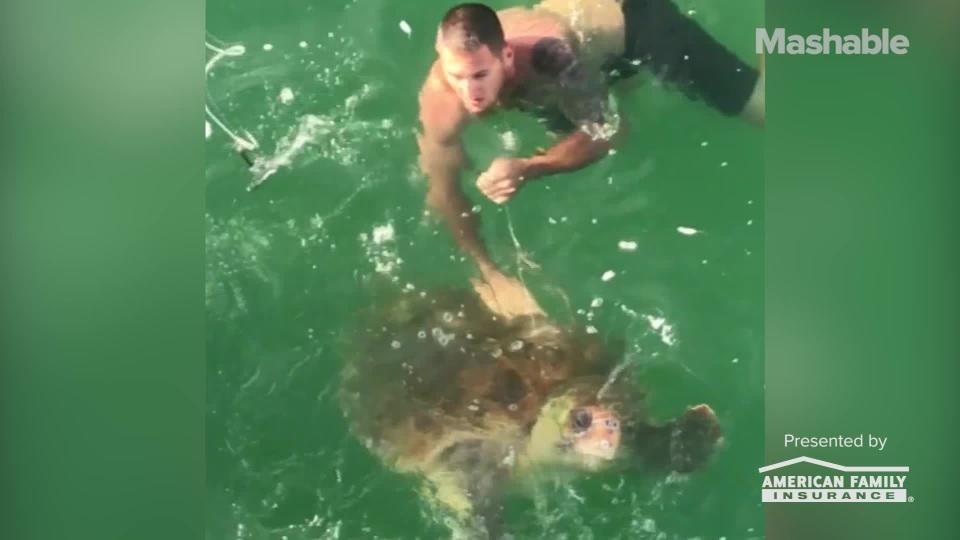How much plastic does it take to kill a sea turtle?

How much plastic does it take to kill a sea turtle? According to new research, it doesn't take very much.
A study published in the journal Nature Thursday found that sea turtles have a 50 percent higher chance of mortality once they've ingested 14 pieces of plastic.
This means that researchers would expect 50 percent of sea turtles who have eaten this amount of plastic to die. The scientists also found that if a turtle had at least 226 pieces of plastic in its gut, then it was certain to die.
SEE ALSO: You may swear off straws after seeing this poor sea turtle
Scientists have been ramping up efforts to examine the precise impacts of ocean pollution on marine life, now that plastic has been found to affect 700 different marine species according to the newstudy's lead researcher Britta Denise Hardesty.
To calculate the impact, a team of scientists led by Hardesty examined data from roughly 300 turtle necropsies around Australia whose deaths were recorded under three different categories: non-plastic related, unknown cause, plastic-related.

Image: kathy townsend
Using these distinctions, researchers were able to compare the unknown and plastic-related deaths to the plastic-related deaths to determine what is considered a normal amount of plastic ingested by turtles.
Within the population they sampled, the amount of debris found in the turtles’ guts ranged from a single piece to 329 pieces.
However, not all scientists agree with the study's conclusions.
“I am more optimistic than the authors,” biologist Jennifer Lynch, who is unaffiliated with the study, said in an email.
A study she conducted in 2017 found that turtles are not impacted by small amounts of plastic debris or even after ingesting 200 to 300 pieces of plastic.
“All studies have some kind of bias, my study was biased towards turtles that were healthy and actively foraging when they drowned on a longline hook," Lynch, who plans to write a rebuttal to the study with other researchers, said.
"[The present] study is biased towards stranded turtles that died from a variety of causes, often unknown causes."
That said, the new study does add to a growing body of scientific literature on plastics and turtle mortality.
Another important finding in the study had to do with the age of the turtles effected by the debris.
Researchers also found a significantly larger amount of plastic in juvenile turtles compared to adults. To them, this signaled that adults are less likely to mistakenly ingest plastic than younger sea turtles.

Image: kathy townsend
Brendan Godley, a conservation scientist unaffiliated with the study, said in an email that this research points to the likelihood that plastic is a key threat to the youngest life stages which was suspected, but not known.
“This is of particular concern as pieces of plastics and baby turtles are both likely to be aggregated together in similar areas,” he explained.
But this doesn’t mean that turtles are on their way to extinction. Sea turtle populations are actually responding well to conservation efforts.
It just signals that if ocean pollution gets worse, sea turtles are in harm’s way, Godley said.
While the exact amount of plastic leading to fatality might be hotly debated, scientists have been aware that plastic is a threat to sea turtle populations for a while. In fact, sea turtles were among the first animals recorded to ingest plastic.
And with rising plastic deposits in the ocean, the threat debris poses to marine life has expanded far beyond just sea turtles and will continue to expand if a solution isn’t found.
WATCH: This man rescued a turtle after it got stuck on a fishing hook


